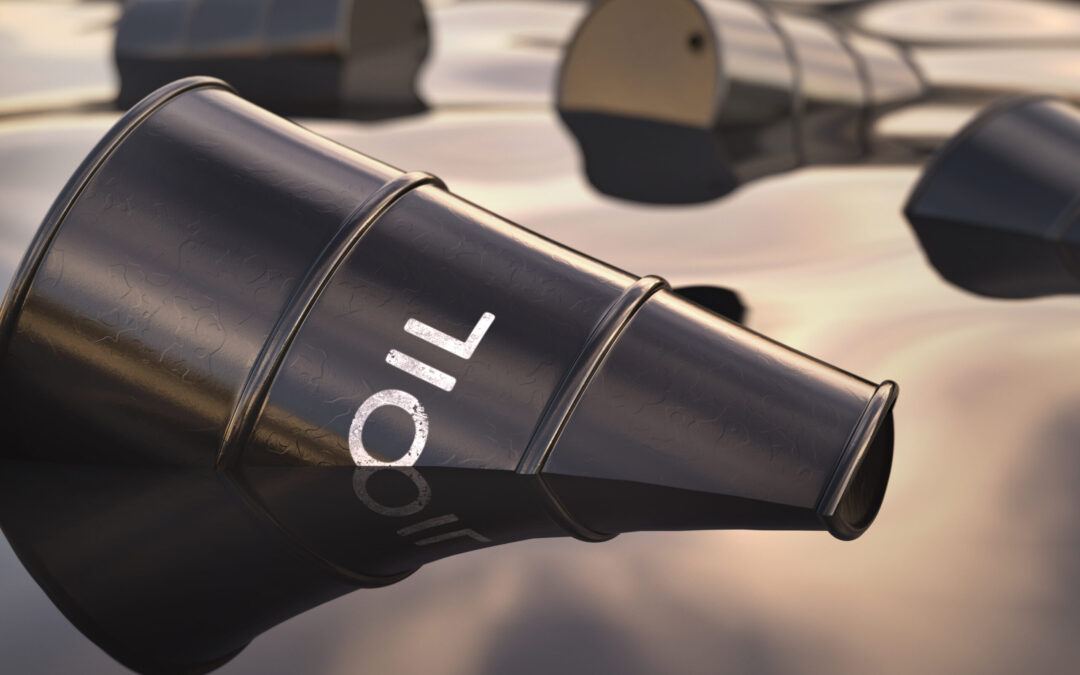Oil prices have been on the rise in recent months, and many investors are wondering if this commodity is a good investment.
After all, oil is a major input in the production of goods and services, so it stands to reason that higher oil prices could lead to inflation.
However, there are several reasons why oil may actually be a good hedge against inflation. Let’s take a closer look at some of these factors.
Inflation and Its Effects on the Economy
Inflation has long been one of the most important economic factors, because it affects everything from consumer spending to overall economic growth.
When inflation rises, it means that prices and wages also rise — but at a rate much higher than inflation.
In other words, inflation makes it more expensive for consumers to buy goods and services. This “cost of living” pressure on households can affect not just their spending habits, but their ability to save money as well.
On the macroeconomic level, inflation drives up interest rates — which can lead to slower growth when businesses are less willing to borrow or invest in expanding their businesses. It can also reduce international competitiveness by reducing exports while increasing imports; inflation increases the prices of the former while making imported goods appear cheaper in comparison.
Inflation is thus a complex concept that requires careful consideration and understanding before being fully appreciated.
Long story short: High inflation is generally considered a bad thing for an economy, as it raises costs for consumers and reduces purchasing power. So if countries want to remain economically secure, it’s best to keep inflation low!
Oil Can Be a Hedge Against Inflation
Oil is one of the most important commodities in our economy, and it can also be used as an effective hedge against inflation.
Basically, oil prices rise when there is a general increase in the cost of living that goes beyond normal market forces.
This is because oil is a universal source of energy, so as more money is needed to cover expenses like rent, groceries and other basic needs, oil prices tend to rise as well.
By investing in oil futures or stocks related to oil production companies, investors can protect their assets from dramatic changes in inflation levels.
Oil is also relatively liquid when compared to other investment options, such as land and precious metals. This makes it easier for people to buy oil on the open market so they can access funds for other purposes if necessary.
Furthermore, oil stocks tend to perform well during periods of inflation since oil production is generally resilient enough to weather economic storms.
Ultimately, oil and oil stocks can be a great way to protect yourself from the impacts of inflation and guard your portfolio against potential losses caused by sudden changes in prices.
How to Invest in Oil to Protect Your Finances From Inflation
Investing in oil is one of the best ways to insure against inflation and protect your finances.
With oil prices generally rising over time due to its limited supply, oil stocks act as a hedge against the increasing prices of goods and services caused by inflation.
Start by doing your research — look for a company that has a history of outperforming other oil producers and read up on its operations to make sure its management team knows what they’re doing.
Once you decide which oil stock to invest in, investigate how it has performed during times of both high and low oil prices, as this will give you an indication of how well it can withstand market fluctuations.
Ultimately, choosing reliable oil stocks and monitoring them closely will enable you to protect your finances from inflation while also potentially earning a profit in the long run.
The Advantages of Oil Stocks as a Hedge Against Inflation
Investing in oil stocks is an effective way to hedge against inflation, and can be a smart move for investors of all levels.
As oil prices spike due to increased demand, oil investments remain relatively stable during extended periods of price volatility.
This stability protects investors from the worst effects of inflation by keeping oil investments from losing value as the cost of consumer goods such as groceries, clothing and other essentials rise.
Additionally, oil stocks tend to appreciate over time as oil companies engage in expansion projects and increase their production capabilities.
Furthermore, oil investments can also provide diversification for portfolios that are heavily laden with other stocks or securities like bonds.
Overall, investing in oil stocks is a great way to protect your wealth from fluctuating market conditions while also enjoying some of the potential upside when oil prices rise.
Investing in oil can be a great choice for those looking to ride out economic storms unscathed.
Make sure to check out The Oil Super Bull Summit where I give you the details on my No. 1 oil stock for 2023.
Hint: It’s a North Dakota-based miner I believe has the power to hit 100% gains in the next 100 days.
Click here for all the details.
To good profits,

Adam O’Dell
Chief Investment Strategist




